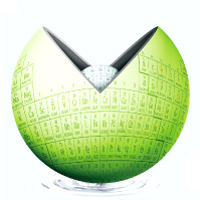
Published for geochemistry community from Geochemical Society of Japan.
Compound-specific stable carbon and hydrogen isotopic compositions of n-alkanes in urban atmospheric aerosols from Tokyo
Geochemical Journal, Vol. 44, No. 5, P. 419-430, 2010
ABSTRACT
Stable carbon (δ13C) and hydrogen (δD) isotopic compositions of n-alkanes in total suspended particles from Tokyo were measured to decipher their source and transport in the polluted urban atmosphere. The δ13C and δD values of the C21 to C33 n-alkanes ranged from -25.5 to -32.8‰ and -55 to -157‰, respectively. The δ13C values are within the range of those in terrestrial higher plants and fossil fuel. In contrast, the δD values of the C21 to C24 n-alkanes and the C26 to C32 even-carbon numbered n-alkanes are in the range of those typical to marine crude oil, indicating that these n-alkanes are primarily derived from the anthropogenic emission of petroleum hydrocarbons. Lower δD values were found in the C25 to C33 odd-carbon numbered n-alkanes than other homologues, suggesting that the long chain n-alkanes are significantly contributed from terrestrial higher plant waxes in addition to fossil fuel hydrocarbons. The δD values of the C29 and C31 n-alkanes show a strong negative correlation with CPI (carbon preference index), which enable us to eliminate fossil fuel contribution using a mass balance approach. Large seasonal variations in the δD values corrected for fossil fuel contribution and their relation to seasonal differences in air mass transport suggest that terrestrial higher plant-derived n-alkanes in the Tokyo aerosols likely originate from the raw leaves of local vegetation. The corrected δD values based on CPI of 10 are in good agreement with those in contemporary vegetation in Tokyo, indicating that local vegetation is more important as a source of terrestrial higher plant-derived n-alkanes in the polluted urban atmosphere.KEYWORDS
δD, δ13C, n-alkane, urban aerosols, Tokyo- Published : 2010-10-20
- Released on J-STAGE : 2013/03/23
- Received : 2010/02/05
- Accepted : 2010/04/09
- DOI : https://doi.org/10.2343/geochemj.1.0084
- J-STAGE URL : https://www.jstage.jst.go.jp/article/geochemj/44/5/44_1.0084/_article/-char/ja
- J-Online ISSN: 1880-5973
- Print ISSN : 0016-7002
- ISSN-L : 0016-7002
All Issues
- Vol.59, 2025
- Vol.58, 2024
- Vol.57, 2023
- Vol.56, 2022
- Vol.55, 2021
- Vol.54, 2020
- Vol.53, 2019
- Vol.52, 2018
- Vol.51, 2017
- Vol.50, 2016
- Vol.49, 2015
- Vol.48, 2014
- Vol.47, 2013
- Vol.46, 2012
- Vol.45, 2011
- Vol.44, 2010
- Vol.43, 2009
- Vol.42, 2008
- Vol.41, 2007
- Vol.40, 2006
- Vol.39, 2005
- Vol.38, 2004
- Vol.37, 2003
- Vol.36, 2002
- Vol.35, 2001
- Vol.34, 2000
- Vol.33, 1999
- Vol.32, 1998
- Vol.31, 1997
- Vol.30, 1996
- Vol.29, 1995
- Vol.28, 1994
- Vol.27, 1993
- Vol.26, 1992
- Vol.25, 1991
- Vol.24, 1990
- Vol.23, 1989
- Vol.22, 1988
- Vol.21, 1987
- Vol.20, 1986
- Vol.19, 1985-1986
- Vol.18, 1984
- Vol.17, 1983
- Vol.16, 1982
- Vol.15, 1981
- Vol.14, 1980
- Vol.13, 1979
- Vol.12, 1978
- Vol.11, 1977
- Vol.10, 1976
- Vol.9, 1975
- Vol.8, 1974
- Vol.7, 1973
- Vol.6, 1972-1973
- Vol.5, 1971
- Vol.4, 1970-1971
- Vol.3, 1969-1970
- Vol.2, 1968
- Vol.1, 1966-1967
Current Issue:
Stats:
Impact Factor: 1.6 (2024)
Submission to final decision: 9.6 weeks (2022)




